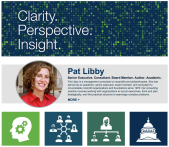Advocacy Resources
Advocacy is an activity by an individual or group that aims to influence decisions within political, economic, and social institutions
Prevention Works!VT Advocacy One Pagers
Prevention Works!VT Advocacy Atlas
Resources to Support Advocacy in Prevention
This toolkit was designed for use by Substance Use Prevention Professionals in Maine, to assist in engaging in policy education with decision-makers at all levels.
• Key takeaways for nonprofit organizations
• FAQs
• Case study for a hypothetical small student voting rights organization
• List of helpful additional resources

Collaborating with Policymakers to Strengthen Substance Misuse Prevention Programming
This tool identifies the types of policymakers prevention might engage, explores potential goals
that can be achieved through collaboration with this important group of stakeholders, offers
examples of potential collaborations, and presents tips for collaborating effectively.

– Tips for Writing Effective Letters to Legislators
– Tips for Testifying Before Legislative Committees
– Glossary of Terms
– Helpful Resources
Vermont Legislature: How to Connect with Legislators
Information on the Vermont legislature, relevant committees, accessing committee meetings, and how to engage in the legislative process.

Advocacy vs. Lobbying:
What’s the Difference? Understanding Regulations for Researchers & Nonprofits
Researchers are often interested in providing their expertise to assist lawmakers’ creation of evidence-based legislation but may be unfamiliar with the rules and regulations around advocacy and lobbying. This practice brief reviews the key differences between lobbying and advocacy and the rules that nonprofit or federally funded researchers need to consider when engaging in policy-related work.
Cannabis School Buffer Zones
A description of what Cannabis Buffer Zones are, how they help, and the current state of Vermont law around them.
Cannabis Potency Limits
A description of the potential harms of high-potency cannabis, the current legislation in Vermont around Cannabis Potency, and opportunities to take action.
Alcohol Advertising and Youth
A description of the impact of alcohol advertising on youth, how to prevent misuse, and current regulations.
Alcohol Excise Taxes
This document discusses how Alcohol Exercise taxes reduce alcohol consumption and related harms. It also details current federal and state alcohol excise taxes, as well as local options for additional taxation and opportunities to advocate for them.
Flavored E-cigarette and Menthol Cigarette Bans
This document discusses the ongoing debate in Vermont surrounding a potential ban on flavored e-cigarettes and menthol cigarettes. It also provides data on e-cigarette and menthol cigarette usage, as well as information on similar legislation in other states.
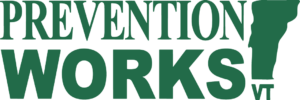
PW!VT Virtual Advocacy Webinar 1/12/2024
A space for prevention staff and stakeholders to better understand the statewide legislative process, how to get involved, and how to provide strong advocacy for prevention-based initiatives. These tools can be used to strengthen advocacy across the community at large, including conversations with friends and neighbors, local lawmakers, and community partners. By strengthening advocacy skills and knowledge, participants will gain expertise on how to stand up for the causes they care most about.
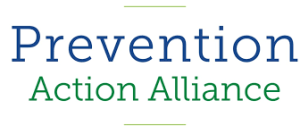
Advocacy is the act of lending your voice to improve the lives of others.
Anyone can be an advocate, and, in fact, everyone advocates for something at some point in their life—asking for a raise at work or for a new job, seeking an opportunity for your child, sharing your story about prevention or mental health issues, or more. At the same time, advocacy can take many forms. It can involve writing letters and emails, making phone calls, meeting with lawmakers and other community leaders, hosting an event or rally, giving speeches, making donations or hosting fundraisers, and more.
When people like you educate lawmakers about prevention and the importance of supporting public health, you help create a better, safer, healthier world for families and communities throughout Ohio. You don’t have to do this work alone, however. As a statewide prevention agency, Prevention Action Alliance works to empower advocates with resources, information, and opportunities for advocacy.

- The Problem: Nonprofits are not advocating for the issues that concern their mission and are therefore missing out on an opportunity to have a bigger impact.
- The Context: Nonprofits steer clear of lobbying for many reasons having to do with knowledge, experience, and stigma. For example, many nonprofit leaders don’t know that lobbying is 100% legal for nonprofits.
- The Solution: The author presents four steps nonprofits can take now to get smarter about lobbying: accept the importance of lobbying, get the facts, meet with officials, and join a trade association.
CADCA’s Advocacy Toolkit
Advocacy is a key part of the public policy process. Numerous policy issues constantly compete for attention at the local, state and national levels. Legislators are generalists and rely on subject matter experts to guide their decision making. Therefore, it is critical to understand how to be an effective advocate for your cause and get your issue on legislators’ policy radar screens. Advocacy can take many forms, from meeting with a legislator in Washington, DC, to attending a town hall in your local community, to sending an email to a legislative staffer. Everyone who wants to participate in advocacy can do so regardless of experience level or time constraints. Learn to get your issue on the policy radar screen so that you can make a difference in your community.
This guide will teach you how to engage in advocacy for substance use prevention, but the principles covered can be applied to any advocacy effort at any level of government. The guide explains how to be a vocal, visible and valuable advocate and gives an overview of the difference between education and lobbying. It provides guidance for developing an effective advocacy strategy. It explains the federal legislative process and will help you prepare to meet with your legislators. This guide will help you maximize your meetings with legislators to ensure that you make an impact for your policy concerns. Even if you are unable to travel to Washington, DC or to your state capitol, the guide offers information on other types of advocacy activities.
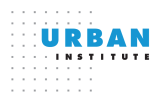
NONPROFIT ADVOCACY AND THE POLICY PROCESS , A SEMINAR SERIES – VOLUME 2
Divining the most effective advocacy strategies for nonprofits seems at first glance to be a rather straightforward empirical question. What, precisely, are the necessary resources that organizations must have at their disposal? In terms of both efficiency and effectiveness, how can an organization best mobilize its members or clients? What kind of research and information is most useful to legisla- tors or administrators as they contemplate action on an issue of importance to the group?
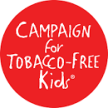
About the Guide
Changing public health policy is one of the most effective ways to improve public health on a population-wide scale. Moving a public health issue onto the policy agenda and through the policy making process requires a well-planned strategic advocacy campaign. The components of an advocacy campaign are the same regardless of the advocacy goals. This guide is designed to help civil society organizations plan and conduct effective advocacy campaigns that will result in the adoption and implementation of strong effective public health policies.


